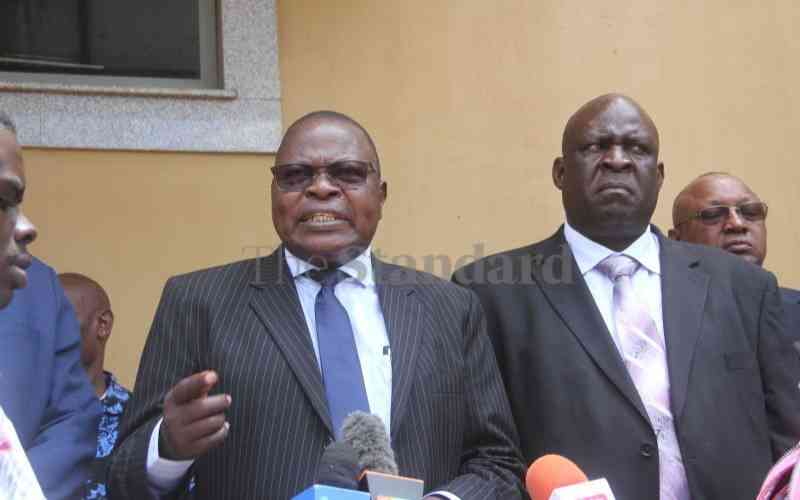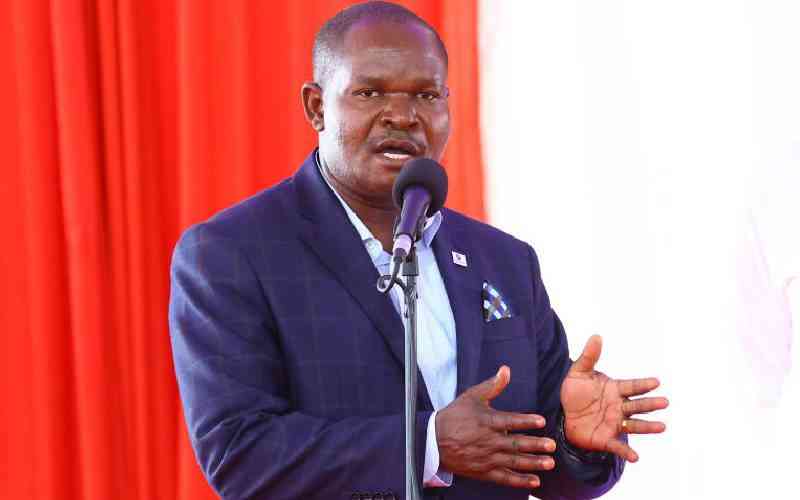The Kenya National Housing Corporation was established by an Act of Parliament in 1967 to spearhead the Government's housing policies.
Some of its core functions include the provision of affordable housing and acquiring capital for housing development. Whereas the NHC has made giant strides in ensuring that many have a roof over their heads, over time, its management has often been accused of malfaesance.
The State-funded outfit has not met the rising demand for affordable housing consigning many Kenyans to living in sink, but mostly expensive estates in town centres. And where it has provided for housing, the acts of its officers have not been beyond reproach.
In fact, former top officials were in April this year arraigned in court charged with abuse of office and corruption.
And before the dust could settle on that, following allegations of massive irregularities in operations at the corporation, the Cabinet Secretary for Lands, Charity Ngilu, suspended the Managing Director, Wachira Njuguna, pending investigations two weeks ago.
A report by the Inspectorate of State Corporations had revealed alleged anomalies in the award of tenders, financial mismanagement and general work practice.
Chief among them include the construction of 2,000 housing units for the police in Ruai, Nairobi that the report says was done done irregularly.
Further, it is claimed that contrary to regulations, NHC did not enter into contract with the Treasury as a measure of safeguarding against misappropriation of public funds.
The tender was single- sourced while the requirement for all public tenders stipulates for open-tendering. Also, money set aside as a floating imprest could not be accounted for. Similarly, the circumstances under which NHC spent Sh800 million on a 10-acre piece of land on which high voltage power lines hang have been questioned.
Yet it is emerging that Mrs Ngilu could have acted on the basis of a report that was altered.
The Transport and Infra-structure Committee of the National Assembly was informed on Friday last week that the report did not recommend for any acts of suspension.
Instead, the Committee heard, the report had recommended that there be a change of leadership style at the Corporation. The Inspector General of State Corporations could not explain how and on whose orders the report was changed.
What emerges out of this is that there is a power play between faceless people who have vested interests in the NHC.
Issues surrounding the running of the Corporation appear to have been politicised and Mr Njuguna could be an innocent bystander.
Stay informed. Subscribe to our newsletter
Who altered the report and under whose instructions? If that is true, Mrs Ngilu should redeem her image by establishing the motive behind the alteration of the report and find out who was responsible and punishment meted out accordingly. in the same vein, if indeed he is not culpable, Mr Njuguna should be reinstated.
Objectivity and fairness in resolving the issue also demands that the MPs playing politics with the issue desist because it clouds the issues therein and exposes Mr Njuguna.
 The Standard Group Plc is a
multi-media organization with investments in media platforms spanning newspaper
print operations, television, radio broadcasting, digital and online services. The
Standard Group is recognized as a leading multi-media house in Kenya with a key
influence in matters of national and international interest.
The Standard Group Plc is a
multi-media organization with investments in media platforms spanning newspaper
print operations, television, radio broadcasting, digital and online services. The
Standard Group is recognized as a leading multi-media house in Kenya with a key
influence in matters of national and international interest.
 The Standard Group Plc is a
multi-media organization with investments in media platforms spanning newspaper
print operations, television, radio broadcasting, digital and online services. The
Standard Group is recognized as a leading multi-media house in Kenya with a key
influence in matters of national and international interest.
The Standard Group Plc is a
multi-media organization with investments in media platforms spanning newspaper
print operations, television, radio broadcasting, digital and online services. The
Standard Group is recognized as a leading multi-media house in Kenya with a key
influence in matters of national and international interest.








